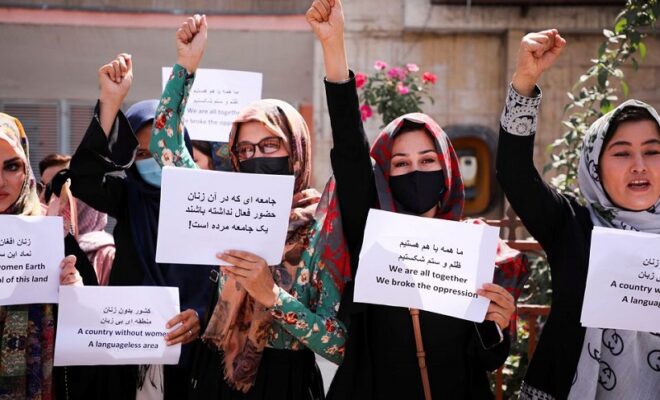UN Aid Chief To Visit Afghanistan Over Female Workers Ban

Taliban had banned female aid workers as well as their higher education in Afghanistan. Thus the UN Aid Chief is visiting there to meet the senior officials.
After the Taliban-led government barred female aid workers, U.N. assistance head Martin Griffiths will travel to Afghanistan in the following weeks in an effort to speak with the highest-ranking officials there. This was announced on Thursday by a senior U.N. official.
After the United Nations announced that some “time-critical” programmes had been temporarily stopped and that other activities would probably also be paused, Ramiz Alakbarov, the U.N. aid co – ordinator in Afghanistan, told reporters in New York, “We regret to see that there is an impact of this decision on our programmes already.”
He said that approximately 30% of assistance workers were women and that they wouldn’t be replaced by men. “The people’s humanitarian needs are really huge, and it’s crucial that we continue to remain and provide,” added Alakbarov.
According to the UN, 20 million people in Afghanistan are suffering from severe hunger, 97% of the population relies on charity for survival, and two-thirds of Afghans live in poverty.
A discussion with the health minister regarding the provision of services for women and girls by female assistance workers, according to Alakbarov, was “quite productive.”
Keep Reading
He said that U.N. officials were in conversation with ministries to address the impact on aid programmes.
“We already have a deal with the minister that there shouldn’t be any obstacles in that industry, and the service providers may go back to work.
Let’s wait and watch how this develops, Alakbarov stated. “Discussions with other line ministers are ongoing, but they have not yet produced the same outcomes.”
He added: “This group has not reacted well to the pressure in the past.” He said he would be concentrating on communicating with the Taliban-led leadership to try and get the ban lifted because they responded better to discussion than coercion.
Alakbarov estimated that 70 percent of U.N. activities were carried out in collaboration with other humanitarian agencies.
Four significant international organizations announced on Sunday that they were ceasing operations due to their inability to manage their activities without female workers. Since then, others have done the same.
The Islamist Taliban-led government imposed the ban on female humanitarian workers on Saturday.
It comes after last week’s restriction on women entering universities. In March, girls were forbidden from attending high school.
Alakbarov claimed that the majority of the laws were issued by the Shura, or leadership council, in the Taliban’s birthplace of Kandahar in the south.
If a law was signed by a minister in Kabul, the capital, it would make reference to the Kandahar Shura.
He said that the Taliban was divided about the prohibitions on women, adding: “It’s also generational. Taliban from an older generation tend to be more traditional.
In August of last year, the Taliban took control. When they were last in power twenty years ago, they essentially outlawed females’ education, but they claimed that their policies had since changed. International recognition has not been accorded to the Taliban-led government.



